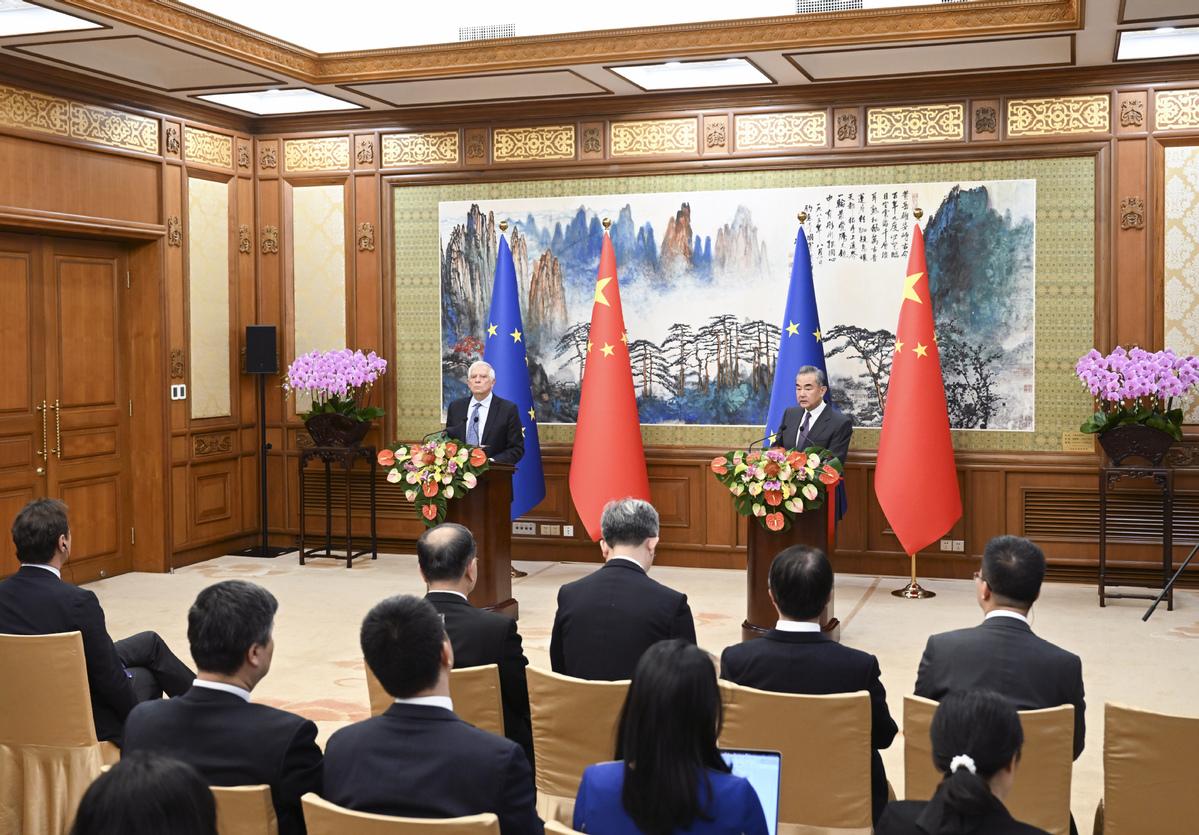
Foreign Minister Wang Yi, also a member of the Political Bureau of the Communist Party of China Central Committee, and Josep Borrell, High Representative of the European Union for Foreign Affairs and Security Policy, hold the 12th round of China-EU High-level Strategic Dialogue in Beijing, capital of China, Oct 13, 2023. [Photo/Xinhua]
This is an editorial from China Daily.
The 12th round of China-EU High-level Strategic Dialogue in Beijing from Thursday to Saturday went almost unnoticed given the global media's focus on the Israeli-Palestinian conflict.
Yet as its title indicates, the dialogue, featuring Foreign Minister Wang Yi and European Union foreign policy chief Josep Borrell, may have far-reaching significance for both sides. As Wang told Borrell, the dialogue comes at a time when the world, including China and the EU, has reached a critical crossroad. So how Beijing and Brussels position themselves and recalibrate their policies toward each other is of strategic significance.
Through much of the decades following the founding of the People's Republic, particularly since China launched reform and opening-up, relations between China and European countries have been on good terms. The increasingly close economic and trade bonds that have been forged between China and the EU are conducive to not only developing constructive relations, but also to helping improve both sides' economic well-being.
Amid the unprecedented changes across the world, however, the China-EU relationship, which has by and large been undisturbed by past political turbulence, is no longer immune to global geopolitical developments. From the China-US differences triggered by the launching of a trade war by the United States and three long years of the COVID-19 pandemic to the Russia-Ukraine conflict and now the Israel-Palestine conflict, with Israel launching massive airstrikes on the Gaza Strip, much has happened in the past few years, putting China-EU relations to test.
Beijing and Brussels do hold very divergent views on global issues because they perceive international affairs and events differently. Since such differences show the two sides' respective outlook on the world order and global governance, there is a need for them to readjust their policies.
The EU has redefined China as a "systemic competitor" and made "de-risking" from China a key component of its new policy toward China. This is difficult to accept for Beijing, because, just as Wang Yi and Vice-President Han Zheng told Borrell, they see no fundamental conflict of interests, no geopolitical contradictions between China and the EU. As a result, both Chinese officials urged the EU to "correctly" understand Sino-EU ties, stick to the strategic partnership they have formed, and oppose "de-risking".
The China-EU dialogue suggested some of the differences between the two sides might continue, preventing Beijing and Brussels from engaging in cooperation to the extent they want to. But the fact that they agreed to sustain constructive and responsible engagement in handling China-EU as well as global affairs is something worth celebrating.
Since both sides have their eyes on the summit meeting near the end of the year, this certainly is worth being matched with closer communication over a wider range of issues.

 中文
中文



